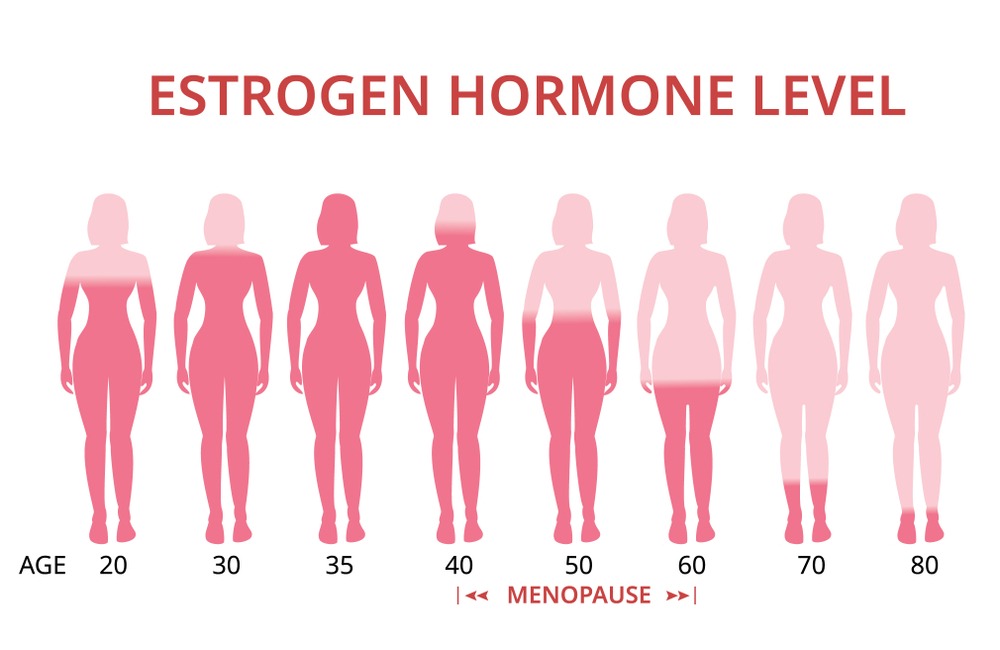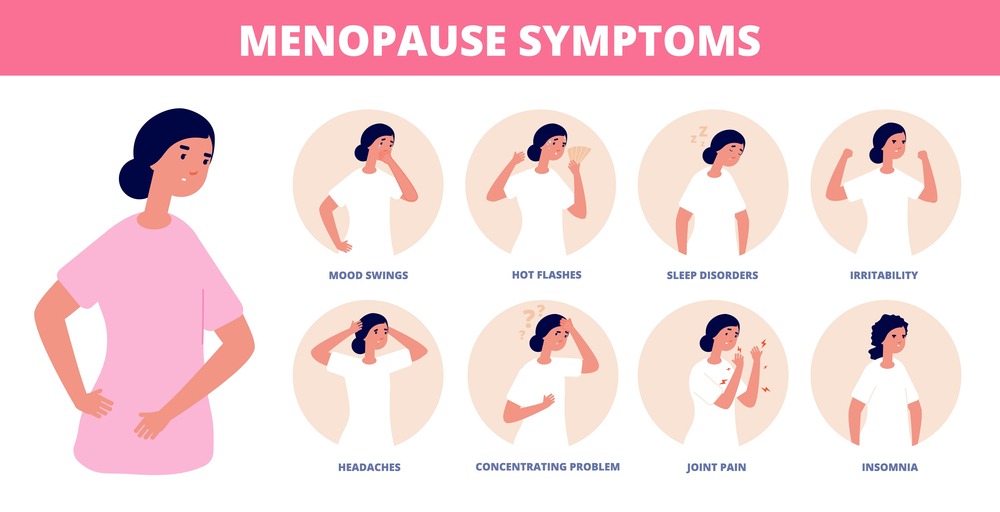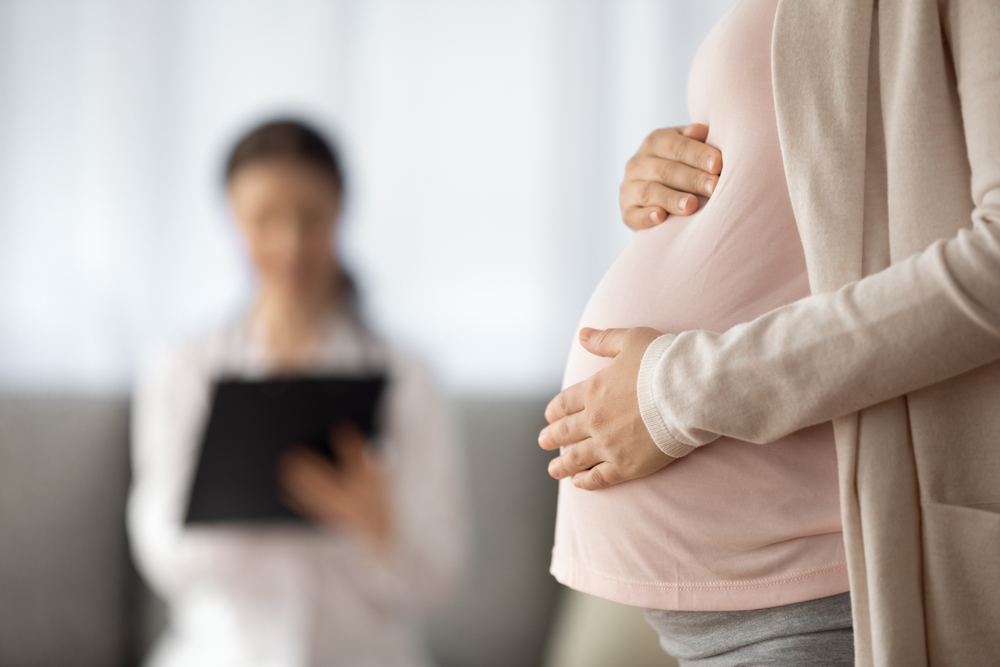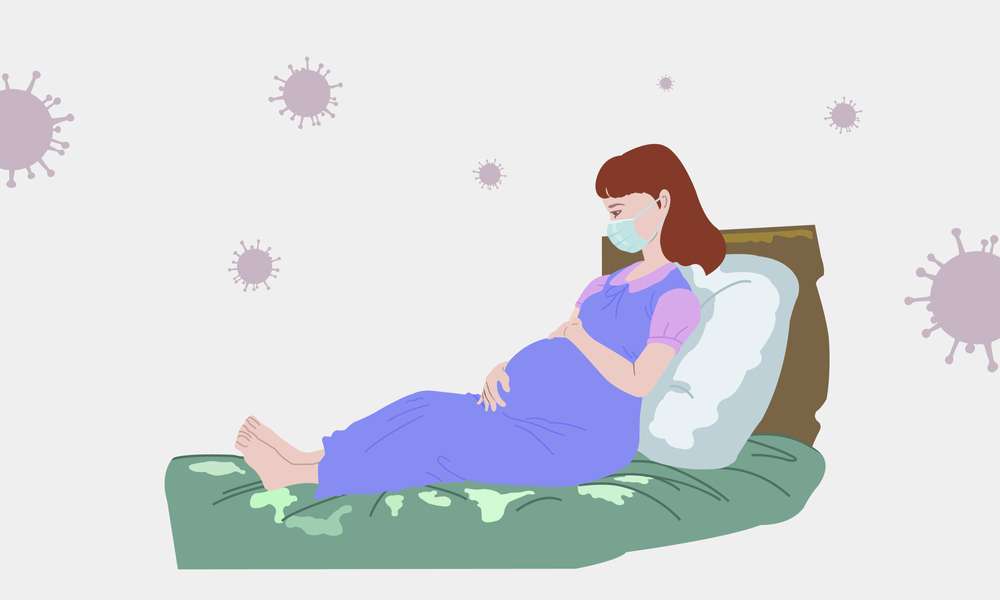Menopause
What is Menopause?
Menopause is a natural phase in a woman’s life that ends her fertile period. This is a major milestone that usually occurs between the late 40s and early 50s and involves a number of physical and emotional changes. Although menopause is often accompanied by hot flashes and mood swings, it is a complex and multifaceted process that requires further investigation. In this article, we’ll cover the basics of menopause, explore its symptoms, and discuss effective strategies for managing this transition period.
Understanding Menopause:
Menopause is the permanent cessation of menstruation. This happens when a woman’s ovaries stop producing eggs and estrogen and progesterone levels drop. This change is a natural part of the aging process and marks the end of a woman’s fertility.
Perimenopause: a transitional phase
Before actual menopause, most women go through a transition phase called perimenopause, which can last several years.Hormone fluctuations during the perimenopause cause irregular menstruation periods and a variety of symptoms.These symptoms may include hot flashes, night sweats, mood swings, and changes in libido.
Typical symptoms:
Menopause causes many symptoms. Every woman’s experience is unique, but some of the most common include:
- Hot flashes: sudden and intense feeling of heat, often accompanied by sweating and a racing heart.
- Night Sweats: Episodes of excessive sweating during the night with sleep disruption.
- Mood swings: Mood swings that can range from irritability to anxiety and depression.
- Vaginal dryness: Thinning and dryness of the vaginal tissue, which causes discomfort during sexual intercourse.
- Changes in libido: decreased sexual desire and reduced responsiveness.
- Sleep disorders: Inability to fall or stay asleep is a sleep condition.
- Weight Gain: Changes in metabolism can lead to weight gain, particularly in the trunk area.
- Risk of osteoporosis: A reduction in estrogen levels may increase the risk of osteoporosis, a disease that weakens bones.

Coping with menopause:
Menopause is a natural part of a woman’s life and although it can be difficult, there are various strategies to effectively deal with its effects. Here are some approaches:
- Hormone replacement therapy (HRT): HRT uses medications to replace hormones (estrogen and progesterone) that the body no longer produces. It can relieve many menopausal symptoms, but is not suitable for everyone and should be discussed with your doctor.
- Lifestyle Changes: Implementing a healthy lifestyle can make a significant difference.A balanced diet, regular exercise, and reducing stress through relaxation techniques can help ease menopause symptoms and improve overall well-being.
- Natural Remedies: Some women turn to natural remedies such as black cohosh, soy and flaxseed, which can relieve some symptoms.Their efficacy differs from person to person, nevertheless.
- Medications: Non-hormonal prescription medications such as selective serotonin reuptake inhibitors (SSRIs) can help control mood swings and hot flashes.
- Regular check-ups: Regular check-ups with your doctor are essential during menopause to monitor bone health, circulatory system and other aspects of well-being.These visits can also help identify and resolve any health problems that arise.
Menopause Symptoms:
Menopause is a significant change in a woman’s life that occurs between the ages of 40 and 50 and marks the end of her childbearing years. During this period, hormonal changes occur in the body, primarily a decrease the generation of progesterone and estrogen, which causes a variety of mental and emotional disorders. Menopause symptoms can vary greatly from woman to woman, ranging from mild to severe. Here are some of the most common symptoms of menopause:
- Hot Flashes and Night Sweats: Perhaps the most well-known symptoms of menopause, hot flashes are a sudden and intense feeling of heat that can lead to sweating and a racing heart. Night sweats are hot flashes that occur during sleep and can interfere with restful sleep.
- Irregular menstrual cycles: One of the first signs of perimenopause (the transition phase before menopause) is irregular cycles. They can become lighter, more severe, more common or less common.
- Changes in the vagina: Menopause can cause vaginal dryness, thinning of vaginal tissue, and reduced natural lubrication. This might make you uncomfortable while having sex.
- Mood swings: Hormonal fluctuations can affect mood, causing mood swings, irritability, anxiety and even depression in some women.
- Sleep problems: Many women have difficulty falling asleep or staying asleep during menopause, often due to night sweats, hot flashes or anxiety.
- Changes in Libido: Decreased libido is a common symptom of menopause, often associated with hormonal changes and physical discomfort due to vaginal dryness.
- Weight Gain: Metabolic changes and hormonal imbalances can lead to weight gain, especially in the abdominal area.
- Urinary incontinence: Weakening of the pelvic muscles and changes in the urinary tract can lead to urinary incontinence problems during menopause.
- Risk of osteoporosis: A decrease in estrogen levels may increase the risk of osteoporosis, a disease that weakens bones and makes them more susceptible to fractures.
- Cognitive Changes: Some women report memory loss and difficulty concentrating during menopause, often referred to as “menopausal brain fog.”
- Skin Changes: Decreased collagen production can lead to changes in skin elasticity and moisture, resulting in dry skin and increased wrinkling.

Note:
Remember that not all women experience all of these symptoms and that their severity can vary. The duration of menopause also varies from person to person. In some women, symptoms may last only a few years, while in others they may last a decade or longer.Treating menopausal symptoms requires a combination of lifestyle changes, medical interventions, and emotional support. Women are encouraged to seek advice from healthcare providers to develop an individualized plan to manage their unique menopause experience.
Signs of Menopause:
Menopause is a natural phase in a woman’s life that ends her fertile period. It is characterized by the absence of menstruation and is accompanied by a range of physical and emotional symptoms. These symptoms usually occur during perimenopause, the transition period leading up to menopause, and may persist even after menopause. Here are some common signs and symptoms of menopause:
- Irregular Menstrual Cycles: Irregular periods are often one of the first signs of perimenopause. The menstrual cycle may become shorter or longer and periods may be heavier or lighter than usual.
- Hot flashes: Hot flashes, also known as hot flashes, are a sudden, intense feeling of heat that can cause sweating and redness of the skin. They represent one of the most characteristic symptoms of menopause.
- Night Sweats: Night sweats are hot flashes that occur during sleep and cause excessive sweating, potentially interrupting sleep.
- Vaginal changes: Menopause can cause vaginal dryness, thinning of vaginal tissue, and reduced natural lubrication. During sexual activity, this may be painful and uncomfortable.
- Mood swings: Hormonal fluctuations during menopause can lead to mood swings, irritability, and an increased risk of anxiety and depression.
- Sleep problems: Many women suffer from sleep problems during menopause, often due to night sweats, hot flashes or anxiety.
- Changes in Libido: Decreased sexual desire and response is a common symptom of menopause, often associated with hormonal changes and vaginal discomfort.
- Weight Gain: Metabolic changes and hormonal imbalances can lead to weight gain, especially in the abdominal area.
- Urinary incontinence: Weakening of the pelvic muscles and changes in the urinary tract can lead to urinary incontinence problems during menopause.
- Risk of osteoporosis: A decrease in estrogen levels may increase the risk of osteoporosis, a disease that weakens bones and makes them more susceptible to fractures.
- Cognitive changes: Some women may experience memory loss and difficulty concentrating, often referred to as “menopausal brain fog.”
- Skin Changes: Decreased collagen production can lead to changes in skin elasticity and moisture, resulting in dry skin and increased wrinkling.
Note:
Remember that not all women experience all of these symptoms and that their severity can vary greatly. In addition, the duration of menopause varies from person to person.In some women, symptoms may last only a few years, while in others they may last a decade or longer.If you have any of these symptoms and are concerned that they may be affecting your life, we recommend that you see your doctor who can advise you and discuss possible treatment options.
Menopause Age:
The age at which women experience menopause can vary, but the average age of onset in most Western countries is around 51 years. However, menopause can occur anywhere between the late 40s and early 60s. Various factors influence the spectrum, including genetics, lifestyle and general health.
Here are some important points about the age of menopause:
- Perimenopause: Before reaching full menopause, women go through a transition period called perimenopause. During this period, which can last several years, hormonal fluctuations become more noticeable and women may experience irregular menstrual cycles and various symptoms of menopause. Perimenopause can begin in a woman after age 40 or even earlier.
- Average Age: The average age of natural menopause is around 51 years in most industrialized countries. Natural menopause occurs when a woman does not have a menstrual cycle for 12 consecutive months.
- Early menopause: Before the age of forty, some women go through an early menopause. This can be due to factors such as genetics, certain medical conditions, surgeries (e.g., removal of the ovaries) or cancer treatments such as chemotherapy.
- Late menopause: Late menopause, which occurs after the age of 55, is less common, but not uncommon. Genetics often play a role in determining when menopause occurs.
- Surgical Menopause: Oophorectomy, a surgical procedure that removes a woman’s ovaries, causes surgical menopause. This leads to the sudden and often severe onset of menopausal symptoms, regardless of age.
Note:
Remember that menopause is a natural biological process and the age at which it occurs can vary greatly. Women experiencing menopausal symptoms or seeking further information about their individual situation should consult their doctor. Additionally, some women may choose hormone replacement therapy (HRT) to relieve menopause symptoms, especially if menopause occurs early or is severe.
When does menopause start?
Women go through a normal biological process called menopause, which ends their reproductive years. The timing of menopause can vary greatly from person to person. Menopause usually begins in women between the ages of 40 and 50, but it can occur earlier or later. Here are some important points about the onset of menopause:
- Perimenopause: Before menopause actually occurs, women go through a transition phase called perimenopause.A number of years before menopause, there may be perimenopause.During this phase, hormone levels begin to fluctuate and Menstrual irregularities and a range of menopausal symptoms are common in women.Perimenopause symptoms are often the first sign that menopause is approaching.
- Average Age: The average age of natural menopause is around 51 years in most industrialized countries. Natural menopause is the absence of menstruation for 12 consecutive months. It’s important to note that this is an average and that many women reach menopause at different ages.
- Early menopause: Some women may experience early menopause, which occurs before the age of 40. Early menopause can be due to factors such as genetics, certain medical conditions, surgical removal of the ovaries (oophorectomy), or cancer treatment such as chemotherapy.
- Late menopause: Late menopause, which occurs after age 55, is less common but not uncommon. Genetic factors often play a role in determining the timing of menopause.
- Menopause caused by surgery: Ovaries are surgically removed to cause menopause.This leads to the sudden and often severe onset of menopausal symptoms, regardless of age.
- Remember that menopause is a natural phase in a woman’s life and the timing can vary. While this is typically associated with the age group mentioned above, every woman’s experience is unique. Some women may enter menopause with relatively few symptoms, while others may have more pronounced and long-lasting symptoms. If you have doubts or questions about menopause and its onset, speaking to your doctor can give you valuable advice and information about your situation.


